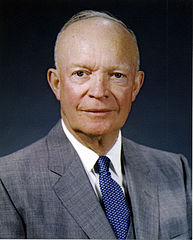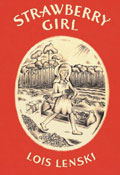Miriam Cohen (born Brooklyn, New York, 1926) has written over 30 books for children. Her works include Will I Have a Friend? and Don’t Eat Too Much Turkey!
E. E. Cummings (born Cambridge, Massachusetts, 1894; died North Conway, New Hampshire, September 2, 1962) was a poet. He was known for his unusual use of punctuation and capitalization. Children can read some of his work at: http://hellopoetry.com/-e-e-cummings/.

Dwight David Eisenhower
Dwight David Eisenhower (born Denison, Texas, 1890; died Washington, DC, March 28, 1969) was the thirty-fourth president (1953-1961) of the United States. During World War I, he was a tank training instructor. By the end of World War II he was a five-star general and Supreme Allied Commander. He was a popular president. The country was experiencing prosperity. The Korean War ended during his presidency. He did have to send in the military to end segregation in Little Rock, Arkansas. Children could visit a website at: Dwight Eisenhower. Idea: Children could compile some statistics as to the number of presidents who had previously been in the military.
Francis Lightfoot Lee (born Westmoreland County, Virginia, 1734; died Richmond, Virginia, January 11, 1797) signed the Declaration of Independence. He represented Virginia, and his brother Richard Henry Lee was also a signer. The shy and quiet Francis Lightfoot Lee persuaded Virginia to ratify the Constitution. Children could learn more at: Francis Lightfoot Lee.

Strawberry Girl
Lois Lenski (born Springfield, Illinois, 1893; died Tarpon Springs, Florida, September 11, 1974) was a children’s author and illustrator. She earned a 1937 Newbery Honor Award for Phoebe Fairchild: Her Book and a 1942 Newbery Honor Award for Indian Captive: The Story of Mary Jemison. She received the 1946 Newbery Award for her Strawberry Girl. She wrote and illustrated approximatley 100 books, including a series featuring Mr. Small. Children can learn more at: Lois Lenski.
William Penn (born London, United Kingdom, 1644; died Ruscombe, United Kingdom, July 30, 1718) founded Pennsylvania. His father, admiral and politician Sir William Penn, had lent a considerable amount of money to England. The King could not easily repay the debt in money. The king offered a huge land grant instead to William Penn. A Quaker, Penn made sure all inhabitants had religious freedom. He also worked to keep friendly relations with the Native Americans. Actually he spent very little time in his home on the Delaware River. Idea: Children could find out what the words Pennsylvania and Philadelphia mean. Children could learn more at: William Penn.